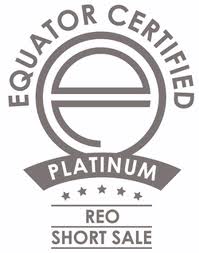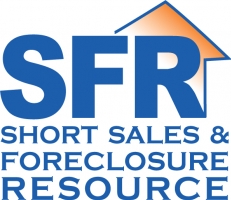In today’s economy home owners are being faced with questions and decisions they never expected. Among these are “How do we avoid Foreclosure?”
Fortunately we have the experience to get you the answers you need.
Best of all, this program is FREE!
At no time during the program, regardless which option you qualify for, will you have to pay anything!
Certifications
Our team is certified in REO and Short Sale Properties by some of the industries top programs.
You can take comfort in knowing you will be working with professionals who understand the complicated details and processes of pre-foreclosed properties to ensure you the best results possible.


Programs and Options
Our Program Representatives will help you understand what options are available to you as well as let you know how you can work with your lender to take advantage of those options.
Forbearance
Under a forbearance agreement, your lender may allow you to reduce or suspend payments for a short period of time. At the end of the forbearance period, you will begin making regular payments plus an additional amount of the past due payments each month until you are caught up.
PRO: You remain in your home. A temporary reduced or suspended payment provides time needed to save money, pay off other bills, find employment or additional employment, or recover from injury or illness.
CON: At the end of the forbearance period, your payment will be higher due to the past due amounts owed. Your mortgage payments could be 20% – 25% higher for a period of 1-year or more.
Loan Modification
If you can make payments on your loan, but don’t have enough money to bring your account current, your lender may be able to change the terms of your original loan to absorb your delinquent payments and make the payments more affordable. Your loan could be permanently changed by adding the missed payments to the back end of the existing loan balance, lowering the interest rate or making an adjustable rate fixed, or extending the number of years you have to repay your loan.
PRO: You remain in your home.
CON: Because of additional debt such as credit cards, car payments, medical bills, and student loans, most people do not qualify for a loan modification. If you purchased your home with little or no money down or your home has depreciated in value at a rate at or near the national average, you may not quality.
Short Sale
If you cannot bring your loan current, afford to make payments moving forward, or are unable to sell the property for the full amount of the loan, your lender may accept less than the amount owed as full payment.
PRO: Under the terms of a short sale, your lender may forgive your mortgage debt in its entirety according to the terms outlined in The Mortgage Debt Relief Act of 2007. Fannie Mae has announced a reduced mandatory waiting period to establish credit history to 2 years after the completion of a short sale. This mandatory waiting period after a short sale is lower than the required 5-7 years following a foreclosure.
CON: You must sell your home.
Deed-in-lieu of foreclosure
If you are unable to bring your loan current or sell your home in a reasonable amount of time, your lender may agree to have you voluntarily transfer the deed to the property to them to help avoid the impact of a foreclosure on your credit rating.
PRO: By voluntarily transferring the deed, you save your lender tens-of-thousands of dollars in foreclosure proceedings. If you are willing to do this, Fannie Mae has reduced the mandatory waiting period to establish credit history to a minimum of 4 years. This mandatory waiting period after a deed-in-lieu of foreclosure is lower than the required 5-7 years following a foreclosure.
CON: Although a deed-in-lieu of foreclosure may have less impact than an actual foreclosure on your ability to establish homeownership in the future, if you are going to cooperate with your lender and take a proactive approach, a short sale is generally the better option.



